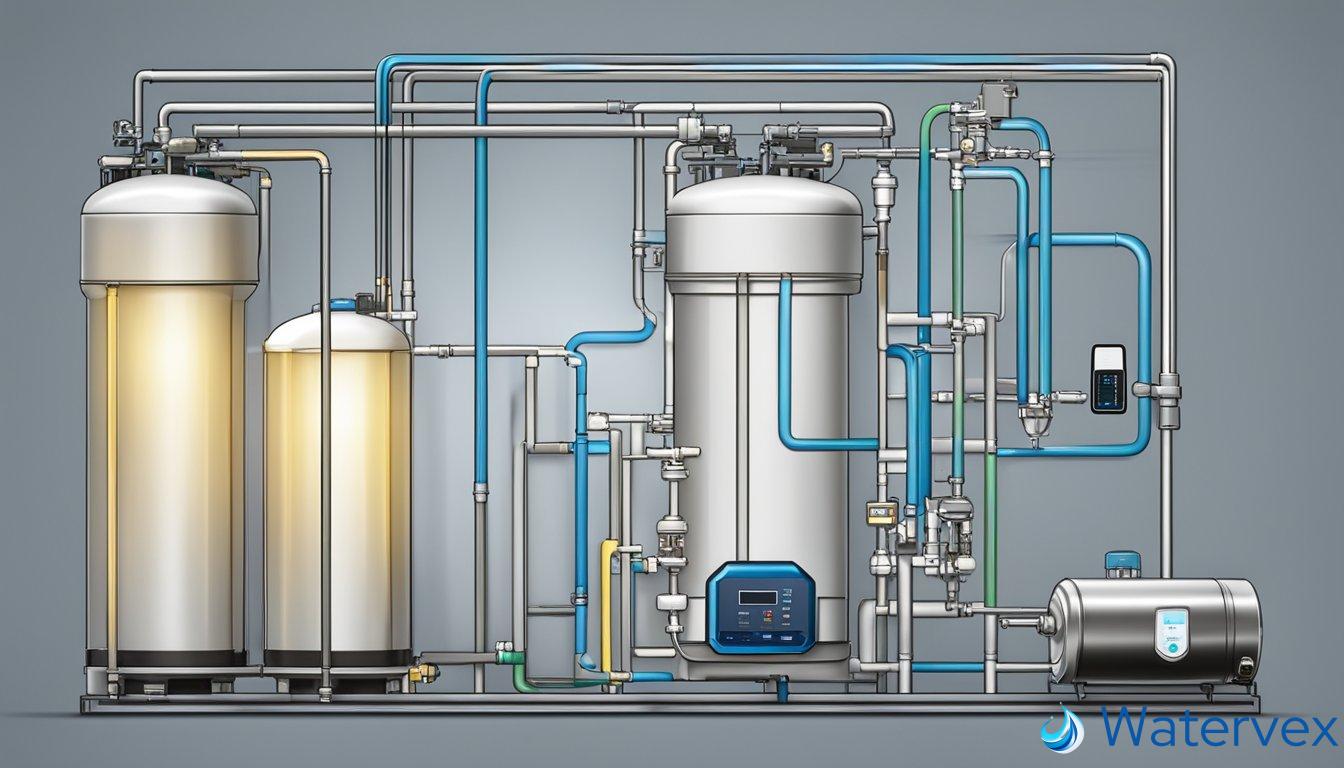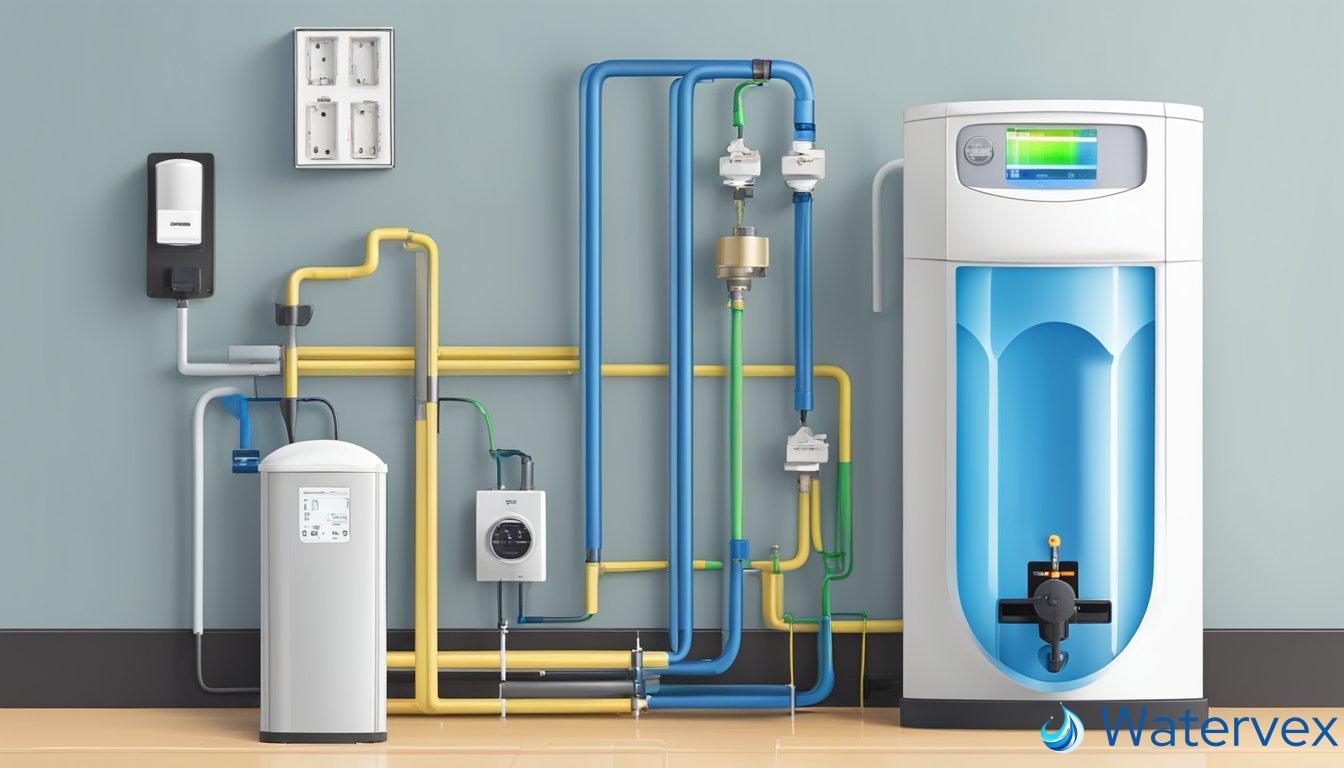Understanding the electricity usage of water softeners is essential for homeowners seeking efficient home maintenance. When you invest in a water softener to combat hard water, it’s not just the initial cost and maintenance that matter; the unit’s impact on your electricity bill is also a consideration. Water softeners have become a common household fixture to ensure water quality, effectively reducing the minerals that cause hardness in water. Moderating the consumption of energy by these devices can contribute to both environmental conservation and household budget management.

The energy consumption of a water softener can be surprising to some, given the low power usage akin to that of an alarm clock. Water softeners use a minimal amount of electricity to operate, often less than what one might expect. However, the actual power consumption depends on several factors, including the size of the unit, the frequency of its regeneration cycles, and the hardness of the water being treated.
Key Takeaways
- Even with constant use, water softeners consume relatively low amounts of electricity.
- The power usage of a water softener is influenced by its operational settings and water hardness levels.
- By understanding and optimizing these factors, homeowners can minimize the energy impact of their water softeners.
How Much Power Does Your Water Softener Consume?
When considering electric water softeners, their power consumption is quite minimal. Your unit typically uses no more energy than what you’d expect from an alarm clock. Specifically, you’re looking at around 70 kWh per year. To put it in perspective, that’s less than what you’d spend on a couple of specialty coffees.
Taking a closer look, this energy usage translates into watts. A water softener might draw as little as 1 amp of current, which equates to approximately 120 watts if you have a standard 120-volt supply. However, your unit could potentially require up to 5 amps, depending on the model and features.
- Average Watts per Year: 70 kWh
- Approximate Cost per Year: < $10
For non-electric water softeners, power consumption isn’t an issue as they operate based on water pressure, eliminating the need for electricity. This means even during power outages, your water softening process remains uninterrupted.
Contrarily, electric models boast features like automatic regeneration, which schedules the recycling of the softener’s resin based on water usage. This feature tends to promote energy efficiency by only operating when necessary. Demand-initiated regeneration models even further optimize energy usage, initiating the cycle based on the actual water consumption of your household, often reducing the frequency of regenerations.
In terms of electricity consumption, remember that not all water softeners are created equal. Newer systems may incorporate more energy-efficient technologies, which could mean that they use less electricity. Check the specifications of your unit:
- Electric Water Softener: 1-5 amps; 120-600 watts depending on the model
- Non-Electric Water Softener: No electricity needed
Be mindful of your model’s specifications and how that translates to gallons per minute and energy usage. This information is vital in optimizing your household’s water treatment efficiency and managing energy costs.
What Factors Influence a Water Softener’s Energy Consumption?

The energy usage of water softeners can vary significantly based on several key factors, directly impacting electricity costs and operational efficiency.
Water Usage and Softener Size
The size of your water softener should be proportional to your household’s water consumption. A unit too large will lead to wasteful energy use during the regeneration process, while a too-small system will regenerate more often, consuming more energy. For example, a family of four typically requires a system that can handle approximately 3000 gallons before needing to regenerate, ensuring optimal efficiency.
Water Hardness Levels
Higher levels of water hardness, which refers to the concentration of calcium, magnesium, and other hardness minerals, demand more frequent regeneration cycles. This, in turn, increases energy consumption. Systems must work harder to remove these minerals, impacting both electrical usage and the amount of salt needed for ion exchange.
Type of Water Softener
Different softener types have varied energy demands. Salt-based water softeners tend to use more electricity as they require a consistent power source for their automatic regeneration cycles. Conversely, salt-free and non-electric water softeners may have lower electricity usage due to their operational mechanisms, which don’t rely on timer settings but rather on the actual water usage.
System Maintenance and Efficiency
Regular maintenance, such as cleaning the filtering system and checking the resin beads, ensures that your water softener operates at peak efficiency. Neglected systems may experience reduced operational efficiency, needing more energy for each regeneration cycle. Timely replacement of parts also plays a crucial role in keeping energy consumption in check.
Can Energy-Efficient Water Softeners Reduce Your Electric Bill?

Energy-efficient water softeners have the potential to lower your electric bills by enhancing the operational efficiency of your water-based appliances and reducing energy use.
Advantages of Energy-Efficient Models
With energy-efficient water softeners, your appliances avoid the costly repairs that come with hard water damage. A key benefit is their ability to maintain water flow and pressure, which cuts down on heat loss and boosts efficiency. Plus, these models are designed to operate using less wattage during their regeneration process, which can lead to noticeable savings on your electricity usage.
Comparing Energy Costs
An energy-efficient unit can save you money by lowering the wattage required during the brine and flushing cycles. For example, if a standard water softener uses 100 watts during regeneration, a more efficient model might only use 80 watts. This 20-watt reduction results in less energy use and, consequently, lower electric bills.
Factors That Impact Energy Savings
Several factors play into the potential savings from an energy-efficient water softener. The lifespan and operational efficiency of your water heater are improved, leading to less energy costs. However, the amount of savings can be influenced by the initial cost of the unit, the frequency of its regeneration cycles, and the efficiency of your current home appliances in terms of energy use.

